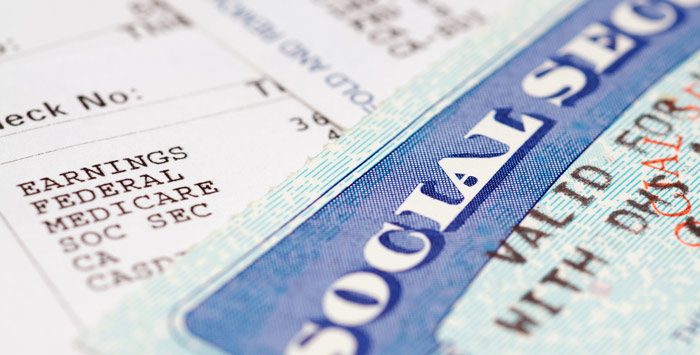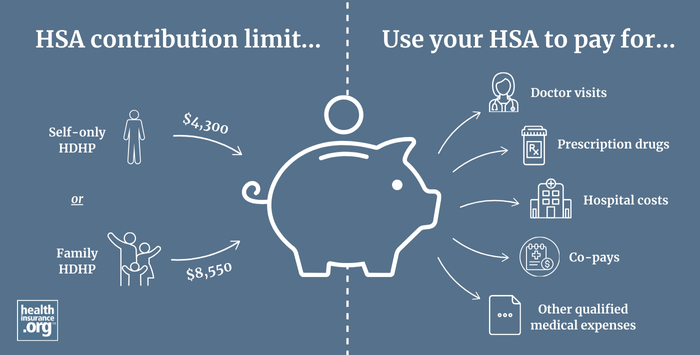Once you enroll in Medicare Part A and/or Part B, your monthly health savings account (HSA) contribution limit drops to zero, even if you continue to also have coverage under an HSA-qualified health plan.
If you continue to contribute to an HSA after you have Medicare coverage, those contributions are considered excess contributions. The excess contributions and any income they generate will be subject to a 6% excise tax for as long as the money remains in the HSA.
So when should you stop HSA contributions? The right time depends on your circumstances.
Consider stopping HSA contributions when you enroll in Medicare
For most people, eligibility for Medicare begins at age 65, though you can submit your enrollment up to three months before the month of your 65th birthday, the month of your 65th birthday, and the three months after. If you’ll be enrolling in Medicare ahead of the month of your 65th birthday, your coverage won’t start until the month you turn 65, and you can continue to fund your HSA until the day before your Medicare effective date.
(Medicare takes effect the first of the month you turn 65, unless your birthday is the first of the month. In that case, Medicare takes effect on the first day of the calendar month before your birthday month.) From there, you must stop your HSA contributions to avoid being penalized, as explained in detail below.
More than 10% of Medicare beneficiaries are under the age of 65 and eligible due to a long-term disability, ALS, or kidney failure. These individuals can become eligible for Medicare at any age, but the rules for HSA contributions are the same: Once a person enrolls in Medicare Part A or Part B, their HSA contribution limit drops to zero, and any subsequent HSA contributions will be considered excess contributions and subject to an excise tax.
Do I need to stop contributing to my HSA six months before I enroll in Medicare?
If you’re already receiving Social Security retirement benefits when you turn 65, you’ll be automatically enrolled in Medicare. But if not, you’ll have to manually apply for Medicare. You’re not required to do that, so it’s possible to delay your Medicare enrollment until some time after you turn 65. You can delay your enrollment as long as you like. You’ll only be able to enroll in Part B during the annual General Enrollment Period or a special enrollment period. But if you’re eligible for premium-free Medicare Part A, you can enroll in that coverage anytime.
But assuming you’re eligible for premium-free Medicare Part A (which is true for 99% of beneficiaries) and you’ve delayed your enrollment, your Part A coverage will automatically be backdated by up to six months. (It can’t take effect earlier than the first month you were eligible, which for most people is the month they turned 65, and for people who aren’t eligible for premium-free Part A, coverage is not retroactive.) Because of this rule, if you’re signing up for Medicare after age 65, it’s important to halt HSA contributions up to six months prior to your enrollment in Medicare.
Here’s how that might play out in practice: You’re eligible for Medicare with premium-free Part A because of your work history in May 2025 but don’t enroll until November 2025. In this case, you would be able to enroll in Part A, but unless you qualify for a special enrollment period, you would not be able to enroll in Part B until the general enrollment period that begins in January of each year.) Because you’re eligible for retroactive Part A coverage dating back to May, you may wish to stop HSA contributions in May.
But say you’re eligible for Medicare in May 2025 and plan to enroll in July 2025. In that case, you don’t need to halt HSA contributions six months prior to enrollment. You only need to stop funding your HSA in May because retroactive Medicare Part A benefits don’t apply prior to that month since your retroactive Medicare Part A effective date can’t be earlier than the month you were first eligible for Medicare.
Keep in mind that if you’re enrolled in an employer-sponsored group health plan (as an active employee or spouse of an active employee) past age 65, you won’t be Part B enrollment as long as you sign up during the special enrollment period that begins once your group health coverage ends. Depending on your circumstances, you may end up enrolling in Medicare well past age 65. That’s when you’ll need to follow the six-month rule for stopping HSA contributions.
What happens if I make HSA contributions after my Medicare coverage starts?
Funds contributed to an HSA after your Medicare coverage starts are called “excess contributions.” Those excess contributions – and any interest or investment gains they accrue – will be subject to a 6% tax penalty. It’s important to stop funding your HSA at the right time, in order to avoid this tax penalty.
Do I need to stop HSA contributions before age 65?
Many people who continue to work past age 65 do enroll in Medicare Part A when they turn 65, since that coverage has no premium if you have at least 10 years of work history in the United States. Some of these workers choose to delay only Part B, which does have a premium, until they retire and their employer-sponsored coverage ends.
But if the employer-sponsored plan is an HSA-qualified high-deductible health plan and you’re contributing to an HSA, you’ll need to delay your enrollment in both Part A and Part B if you wish to continue to make HSA contributions. And then you’ll need to cease your HSA contributions six months before you eventually enroll in Medicare.
If you and your spouse are both covered by an HSA-qualified health plan, the rules described above will need to be taken into account when the first spouse turns 65.
- If you’ve been making HSA contributions to a single HSA based on the family contribution limits (allowable if two family members are both covered under the HSA-qualified plan), you’ll need to switch to the single enrollee contribution limits as of the month that one spouse is enrolled in Medicare, since the Medicare-eligible spouse’s contribution limit will drop to zero at that point. However, if you have children on the plan as well and will thus continue to have two or more family members who are eligible to make HSA contributions, you can continue to make the family contributions.
- If each spouse has their own individual HSA, the spouse who is enrolling in Medicare will have to stop making HSA contributions. But the younger spouse will be able to continue making contributions to their own HSA as long as they continue to have HSA-qualified health coverage, until they eventually enroll in Medicare.
Disclaimer: This article is for informational purposes only. You should consult with a financial advisor or tax professional before making any decisions about your financial situation.
Maurie Backman has been writing professionally for well over a decade, and her coverage area runs the gamut from healthcare to personal finance to career advice. Much of her writing these days revolves around retirement and its various components and challenges, including healthcare, Medicare, Social Security, and money management.
Footnotes






